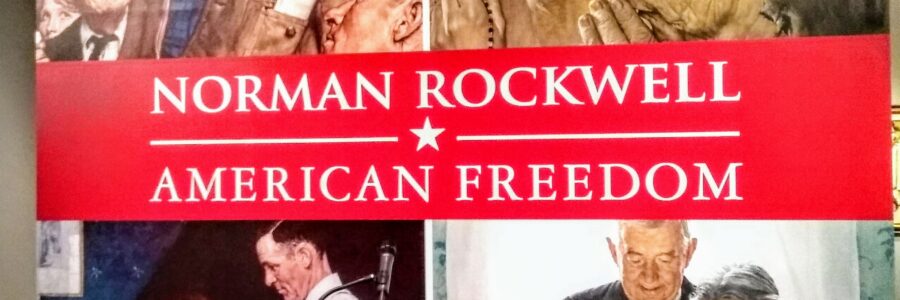
Norman Rockwell: American Freedom Presented by Museum of Fine Arts-Houston
Internationally touring exhibition examines Rockwell’s Four Freedoms paintings
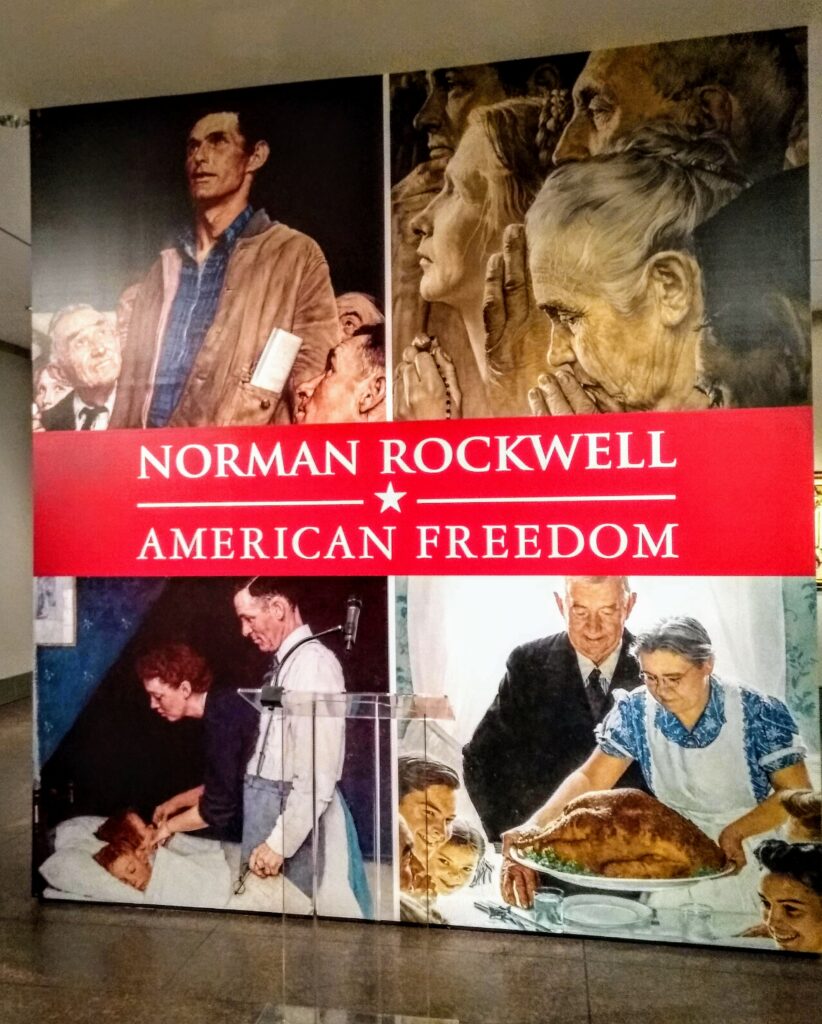
The presentation is the first comprehensive exhibition devoted to Norman Rockwell’s iconic depictions of FDR’s Four Freedoms—Freedom of Speech, Freedom of Worship, Freedom from Fear, and Freedom from Want—exploring how the 1943 paintings came to be embraced by millions of Americans, providing crucial aid to the war effort and taking their place among the most indelible images in the history of American art.
The exhibition will be on view at the Museum of Fine Arts, Houston, through March 22, 2020.
Houston is the fifth venue for the acclaimed exhibition’s seven-city tour and is organized by the Norman Rockwell Museum. The exhibition debuted at The New-York Historical Society in May 2018. In addition to the Four Freedoms, Norman Rockwell: American Freedom features paintings, illustrations, and prints by Rockwell and a range of his contemporaries. Throughout the exhibition, historical documents, photographs, videos, artifacts, and interactive digital displays bring the era to life.
Exhibition Overview
The exhibition is organized into five thematic sections that examine the context for Rockwell’s work.
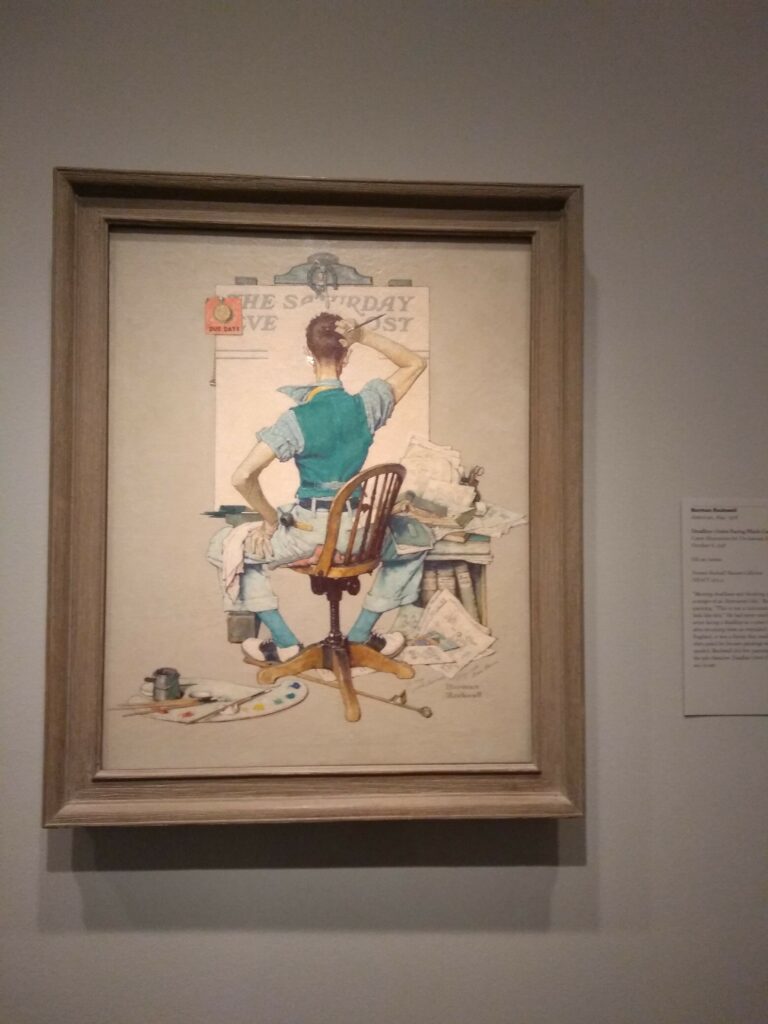
The War Generation
The exhibition opens with a look at the political and socio-economic backdrop against which Roosevelt announced the Four Freedoms. A recording of one of Roosevelt’s famous Fireside Chats, this one from April 14, 1938, will enable visitors to hear from the president himself as he addresses the crushing struggles of the Great Depression, conveyed through newsreel footage and photographs by Walker Evans, Dorothea Lange, Arthur Rothstein, and others.
FDR’s Freedoms
This section turns to Roosevelt’s emphatic proclamation of the Four Freedoms as a rationale to enter the war, presented in his 1941 address to Congress. The speech and the subsequent incorporation of the Freedoms into the Atlantic Charter—evoked here through photographs and documents—was not able to rally the nation behind the war. The presentation includes drawings and published illustrations by Rockwell and others intended to gain support for the war effort.
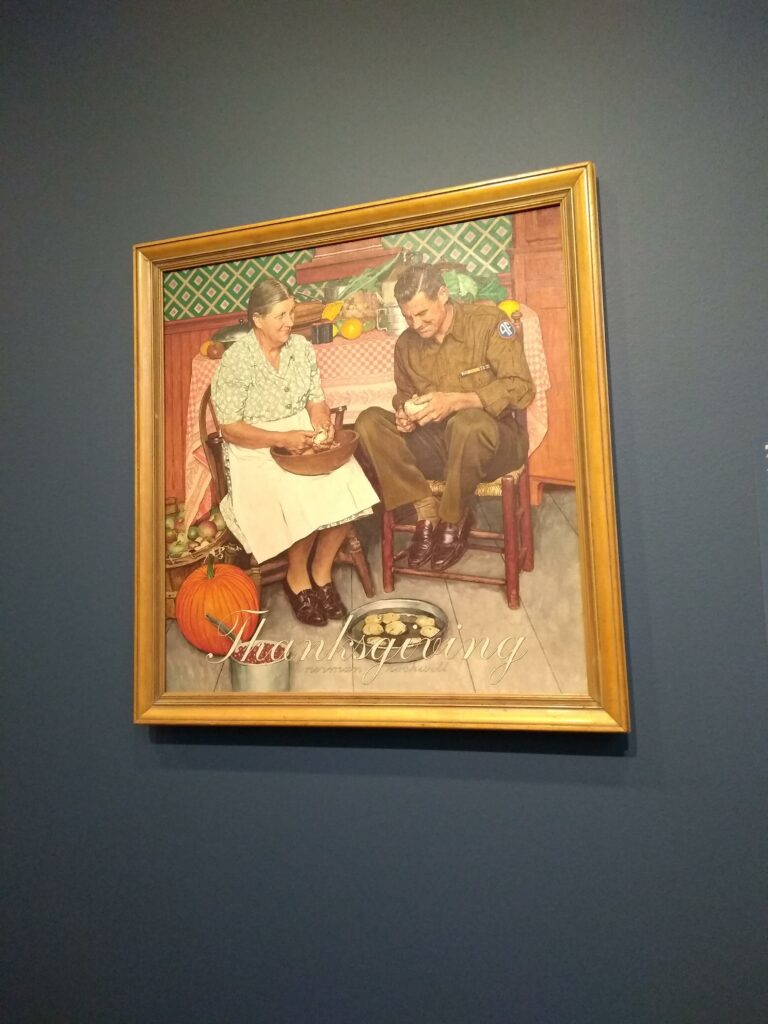
Artistic Response to the Four Freedoms Ideals
This section documents the government’s efforts to promote these ideals to the public by encouraging artists across disciplines to interpret Roosevelt’s Freedoms, including a range of tributes to the Freedoms in the form of sculpture, paintings, prints, and drawings for the campaign. A group of powerful World War II propaganda posters in this section includes examples that addressed life on the home front, and that were intended to rally support for the troops and remind the public of its civic duty.
Rockwell’s Four Freedoms
This section addresses Rockwell’s interpretation of Roosevelt’s Four Freedoms and how, thanks largely to their reproduction in The Saturday Evening Post, they would come to be embraced by millions. Rockwell found himself challenged to find a way to translate the president’s lofty ideals into something that would touch the daily lives and hearts of average American citizens.
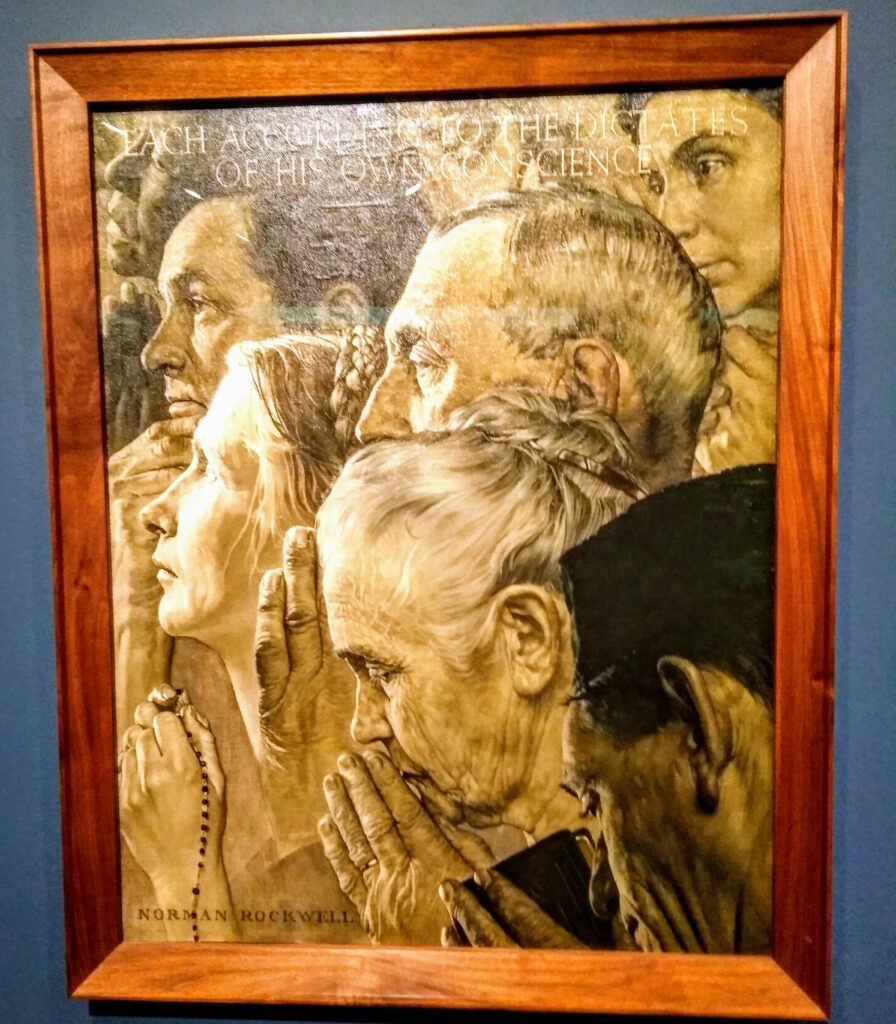
While struggling to find a solution, he happened to attend a local town-hall meeting where a man stood up to voice an unpopular view. It was then that Rockwell realized he could best paint the freedoms from the perspective of his own hometown experiences, using everyday scenes like that town meeting. The simple approach turned out to be the key to transformational change: Rockwell’s images immediately became inseparable from Roosevelt’s Four Freedoms in the public imagination.
Freedom’s Legacy
The exhibition concludes by following the postwar outcomes of Roosevelt’s Four Freedoms. Central to this section is Rockwell’s ongoing focus on the theme of human rights, bringing his Four Freedoms paintings to the postwar era. After a 47-year career with The Post in 1963, Rockwell sought new artistic challenges.
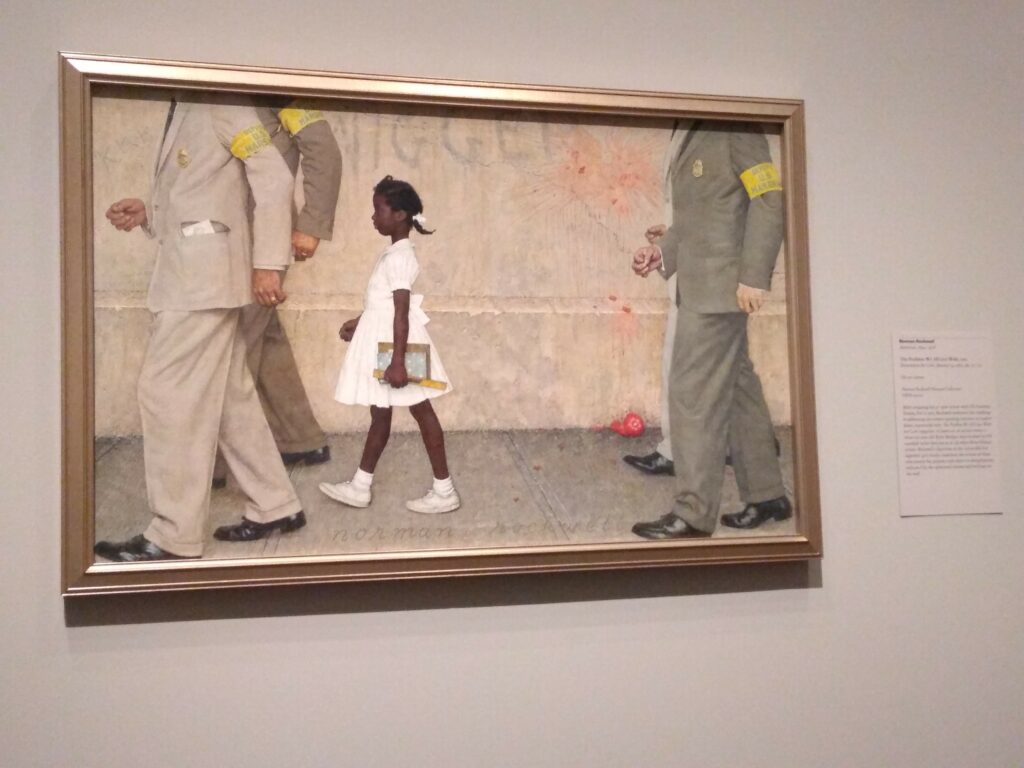
His painting The Problem We All Live With portrays a six-year-old African-American girl being escorted by U.S. marshals to her first day at an all-white school in New Orleans, an assertion of moral decency.
The Four Freedoms Reimagined
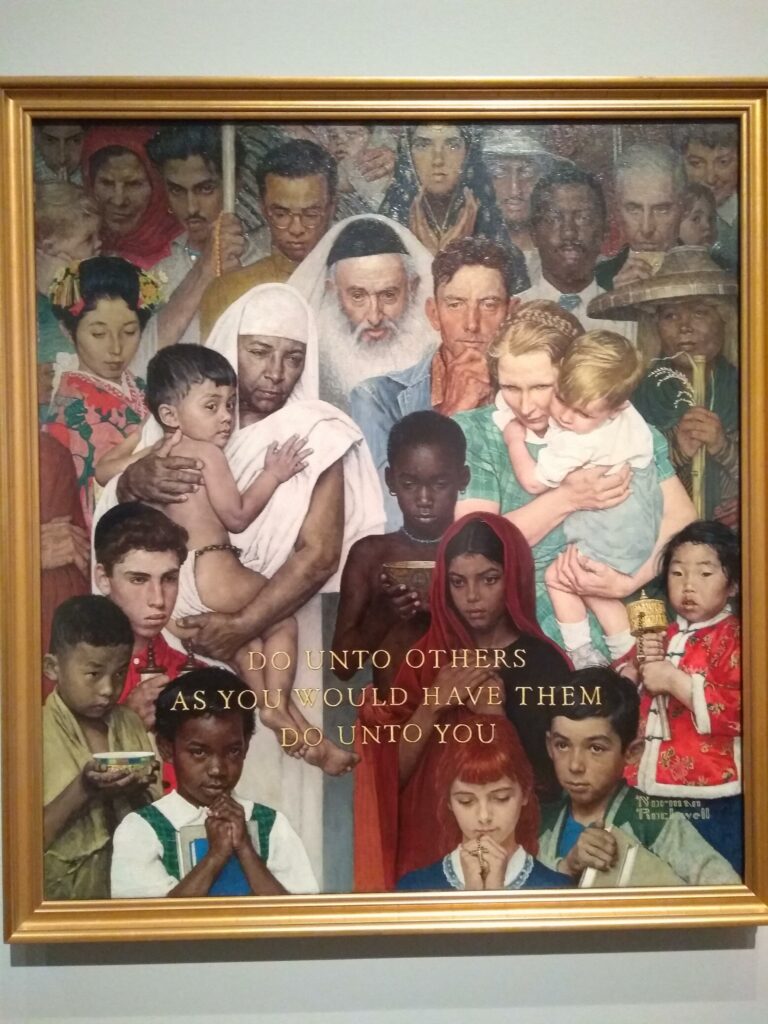
Accompanying Norman Rockwell: American Freedom, the MFAH will present a contemporary response, The Four Freedoms Reimagined, a photography project created by Hank Willis Thomas and Emily Shur in collaboration with Eric Gottesman and New York-based photographer Wyatt Gallery.
This reimagining of Norman Rockwell’s paintings features 16 photographs from this series shown in an adjacent gallery, encouraging viewers to consider the enduring values of these basic principles, first articulated by President Franklin D. Roosevelt during World War II, and how they impact our lives today.
TICKET INFORMATION:
Visit www.mfah.org.
Photos: V. Sweeten